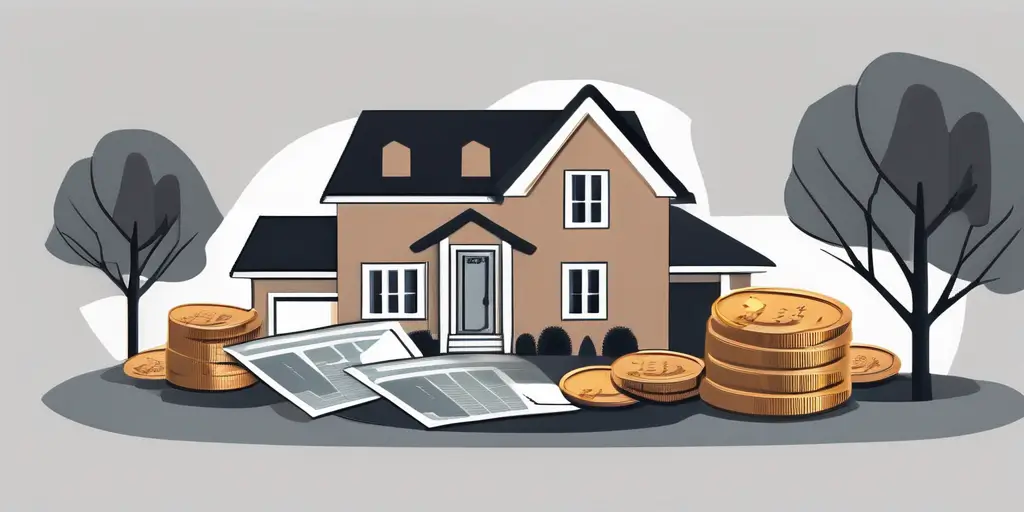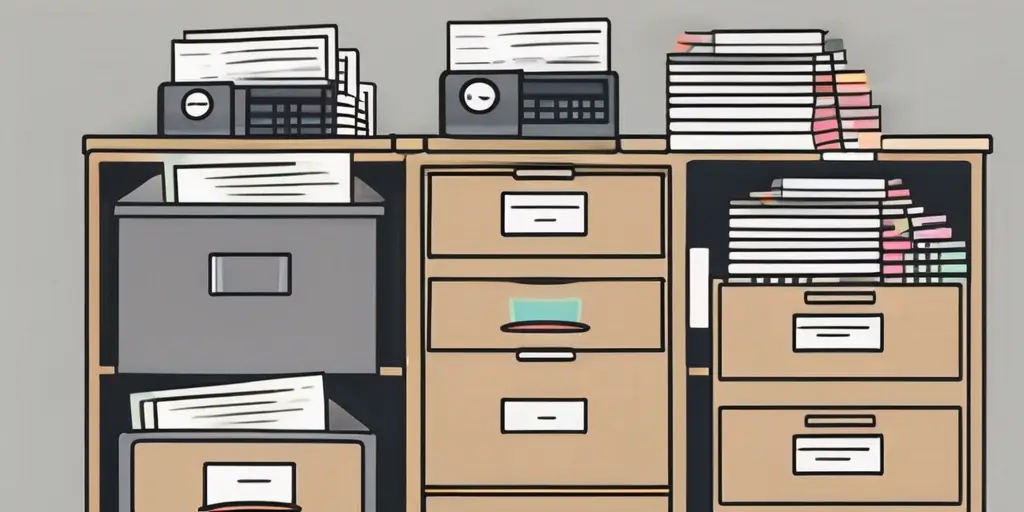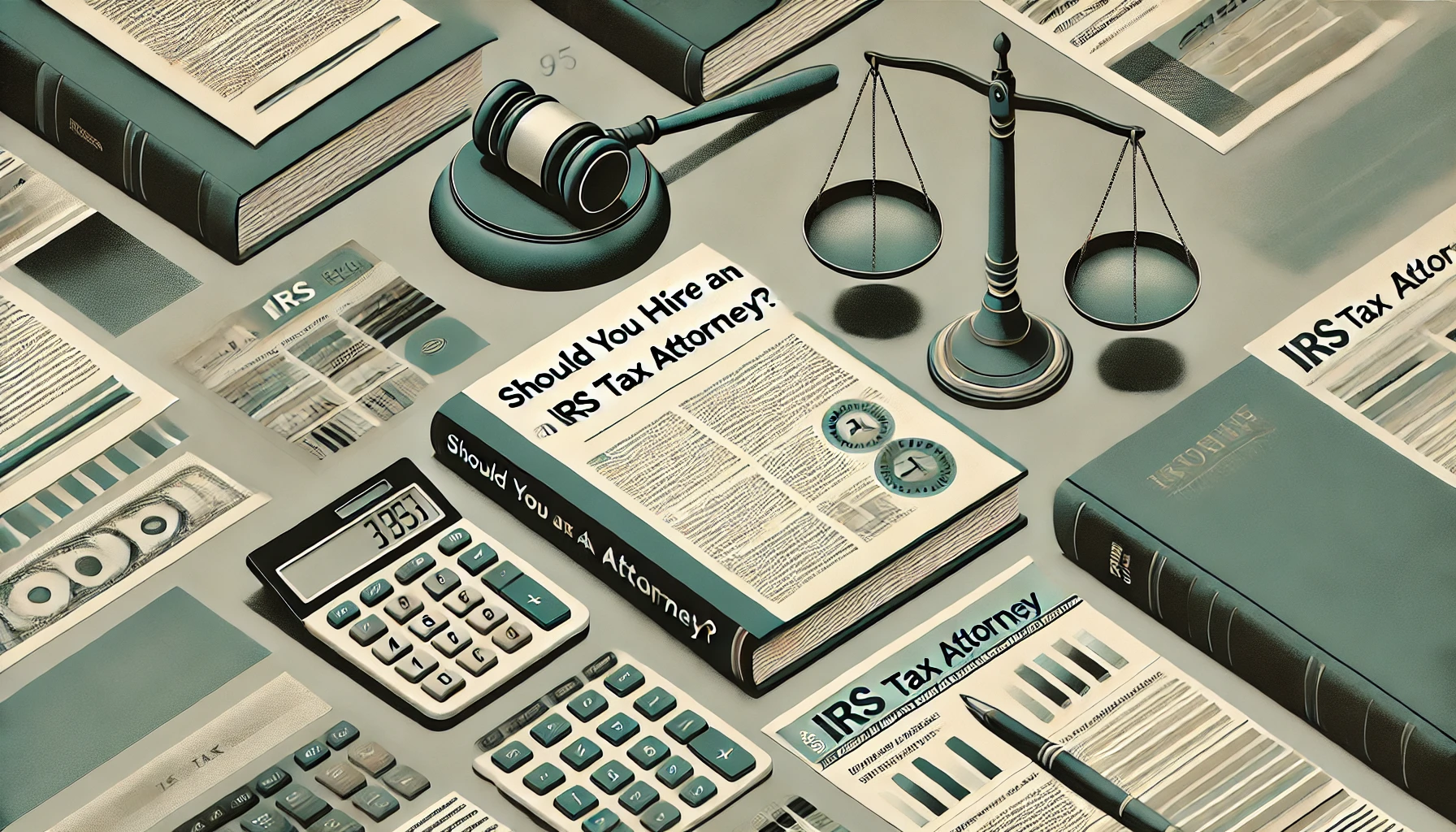When it comes to dealing with the Internal Revenue Service (IRS), there are two terms that often cause confusion: IRS tax levy and IRS tax lien. While they may sound similar, they actually refer to different actions taken by the IRS to collect unpaid taxes. In this article, we will delve into the basics of both IRS tax levies and IRS tax liens, understand how they work, and explore the consequences and impacts they can have on your finances. We will also discuss the key differences between the two and provide some helpful tips on how to prevent them
Understanding the Basics of IRS Tax Levy
Let’s start by defining what an IRS tax levy is. Simply put, an IRS tax levy is a legal seizure of your property or assets to satisfy a tax debt. This means that the IRS has the authority to take actions such as garnishing your wages, seizing funds from your bank account, or even seizing and selling your property to satisfy the unpaid tax debt.
Now, let’s explore how an IRS tax levy works. The process typically begins with the IRS sending you a Notice and Demand for Payment, informing you of the amount you owe in taxes and providing a deadline for payment. If you fail to pay or make arrangements to settle the debt, the IRS can proceed with a tax levy.
It’s important to note that the IRS cannot simply seize your property or assets without proper notification. In most cases, they will send you a Final Notice of Intent to Levy, giving you one last opportunity to resolve the issue before the levy takes effect.
Consequences of an IRS Tax Levy
Dealing with an IRS tax levy can have severe consequences on your financial situation. When the IRS levies your wages, a portion of your income will be taken directly from your paycheck, leaving you with less money to meet your day-to-day expenses. This can make it difficult to cover basic necessities and can create financial stress for you and your family.
If the IRS decides to levy your bank account, they can seize the funds in the account up to the amount you owe in taxes. This can be a major inconvenience, as it can leave you without access to your hard-earned money and make it challenging to pay your bills or meet other financial obligations.
Furthermore, if the IRS levies your property, such as your car or home, they can sell it to satisfy the tax debt. Losing your assets can have a significant impact on your life and financial stability.
Aside from the immediate financial consequences, an IRS tax levy can also have long-term effects. For example, having a tax levy on your record can make it challenging to obtain credit or loans in the future. Lenders may view you as a higher risk borrower, which can result in higher interest rates or even denial of credit.
In addition, an IRS tax levy can also damage your reputation and credibility. If your employer or others find out about the levy, it may create a negative perception of your financial responsibility and trustworthiness. This can have implications for your professional life and personal relationships.
It’s important to understand that an IRS tax levy is a serious matter that should not be taken lightly. If you find yourself facing a tax levy, it is crucial to seek professional help from a tax attorney or a qualified tax professional who can guide you through the process and help you explore options for resolving your tax debt.
Delving into the Details of IRS Tax Lien
Now, let’s turn our attention to IRS tax liens. A tax lien is a legal claim the IRS places on your property as a result of unpaid taxes. Unlike a tax levy, which involves the seizure of property, a tax lien is a legal claim that serves as security for the IRS to collect the unpaid tax debt.
The process of obtaining an IRS tax lien starts with the IRS assessing the tax amount you owe and sending you a Notice and Demand for Payment. If you fail to pay or make arrangements to settle the debt, the IRS will file a Notice of Federal Tax Lien, publicly notifying creditors that the IRS has a legal claim against your property.
When the IRS files a Notice of Federal Tax Lien, it becomes a matter of public record. This means that anyone, including potential lenders, employers, or landlords, can access this information. The presence of a tax lien on your record can raise concerns for these parties, as it suggests a potential risk in terms of your financial stability and ability to meet your obligations.
Impacts of an IRS Tax Lien on Your Finances
Having an IRS tax lien can have significant impacts on your finances.
First and foremost, it can negatively affect your credit score, making it challenging to obtain credit or loans in the future. A tax lien on your credit report signals to potential lenders that you have unresolved tax issues, which can reduce your chances of obtaining credit or result in higher interest rates.
In addition to the impact on your credit, an IRS tax lien can also make it difficult to sell or refinance property. When there is a tax lien on your property, the IRS has a legal claim to the proceeds from the sale. This means that you may need to satisfy the tax debt before being able to sell or refinance the property.
Furthermore, an IRS tax lien can have implications for your professional life. Some employers conduct background checks that include a review of an applicant’s financial history. If a tax lien appears on your record, it may raise concerns about your financial responsibility and could potentially affect your chances of securing employment.
It is important to note that an IRS tax lien does not last indefinitely. The IRS has a specific timeframe within which they can collect the debt. However, until the lien is released or satisfied, it can continue to have a significant impact on your financial situation and overall peace of mind.
Key Differences Between IRS Tax Levy and IRS Tax Lien
Legal Implications
One key difference between an IRS tax levy and an IRS tax lien lies in their legal implications. An IRS tax levy involves the actual seizure of property or assets, while an IRS tax lien serves as a legal claim against your property as security for the unpaid tax debt.
Financial Implications
From a financial standpoint, an IRS tax levy can have more immediate and direct consequences. It involves the actual seizure of funds or property, which can significantly impact your financial stability. On the other hand, an IRS tax lien primarily affects your credit score and your ability to sell or refinance property.
Duration and Resolution
Another important difference is the duration and resolution of an IRS tax levy versus an IRS tax lien. An IRS tax levy remains in effect until the tax debt is paid in full or until the statute of limitations for collection expires. On the other hand, an IRS tax lien stays on your credit report for seven years but can be released if you meet certain conditions, such as paying off the tax debt or entering into a repayment agreement with the IRS.
Now, let’s dive deeper into the legal implications of an IRS tax levy. When the IRS issues a tax levy, they have the authority to seize your property or assets to satisfy your unpaid tax debt. This means that they can take possession of your bank accounts, real estate, vehicles, and other valuable assets. The seized property or assets may then be sold by the IRS to recover the amount owed.
It is important to note that the IRS must follow specific procedures before issuing a tax levy. They are required to send you a Notice of Intent to Levy, giving you an opportunity to resolve the tax debt or appeal the decision. If you fail to respond or take appropriate action, the IRS can proceed with the levy. This can have a significant impact on your financial stability, as the seizure of assets can leave you without the means to meet your daily expenses or financial obligations.
On the other hand, an IRS tax lien operates differently. It serves as a legal claim against your property, notifying other creditors that the IRS has a right to your assets. This means that if you were to sell or refinance your property, the IRS would have the first right to the proceeds to satisfy the unpaid tax debt. While a tax lien does not result in the immediate seizure of property, it can still have long-term financial implications.
Having an IRS tax lien on your credit report can make it difficult for you to obtain credit or secure favorable loan terms. It can negatively impact your credit score, making it harder for you to qualify for loans, credit cards, or even rental agreements. Additionally, a tax lien can hinder your ability to sell or refinance your property, as potential buyers or lenders may be hesitant to proceed with the transaction.
It is worth noting that both an IRS tax levy and an IRS tax lien can be resolved through various means. If you are facing an IRS tax levy, you may be able to negotiate a payment plan or settle the debt through an Offer in Compromise. On the other hand, if you have an IRS tax lien, you can work towards paying off the debt in full or explore options such as a lien subordination or lien withdrawal.
Ultimately, understanding the key differences between an IRS tax levy and an IRS tax lien is crucial when dealing with tax debt. By being aware of the legal and financial implications, you can take appropriate action to resolve your tax issues and minimize the impact on your financial well-being.
How to Prevent IRS Tax Levies and Liens
Now that we have explored the basics of IRS tax levies and liens, let’s discuss some preventive measures you can take to avoid finding yourself in such situations.
Regular Tax Payments
One of the most effective ways to prevent IRS tax levies and liens is to pay your taxes on time and in full. Make sure you have a solid understanding of your tax obligations and deadlines, and set aside funds to cover them. If you are unable to pay the full amount, consider filing for an extension or working out a payment plan with the IRS.
Communication with the IRS
If you find yourself unable to pay your taxes or facing financial difficulties, it is crucial to maintain open communication with the IRS. Ignoring or avoiding the issue will only make matters worse. Reach out to the IRS and explain your situation. They may be able to work with you to set up a payment plan or explore other options to resolve your tax debt.
Seeking Professional Help
Lastly, if you are struggling with tax issues or find the process overwhelming, consider seeking professional help like a firm like ours. Tax professionals, such as tax attorneys, have the expertise and knowledge to navigate the complexities of the tax system and can provide guidance and assistance in dealing with the IRS.
In conclusion, understanding the differences between IRS tax levies and liens is crucial in protecting your financial well-being. By staying informed, taking preventive measures, and seeking professional help when needed, you can avoid the potentially devastating consequences of IRS tax levies and liens.



